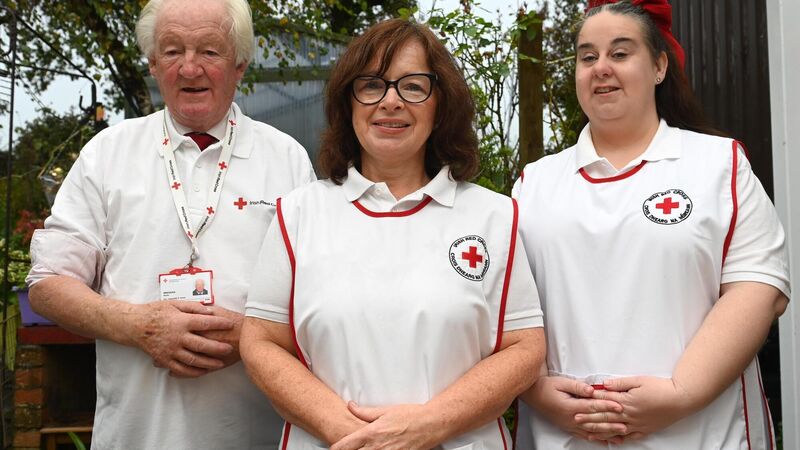How Millstreet volunteers are using the healing power of touch in their community

Irish Red Cross volunteers Brendan Murphy, Margaret Crean, and Laura Galvin, who are part of the Kanturk/Millstreet Red Cross group, provide therapeutic hand care to patients at community hospitals and day centres.
FOR the bones of five years, Millstreet-based Brendan Murphy looked after his late wife Kathleen — she had kidney issues and was on home dialysis.








